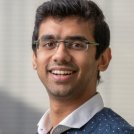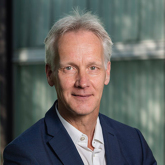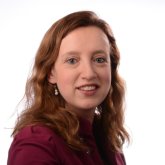The Chair of Neuromuscular Robotics is seeking a creative and motivated PhD candidate to advance our understanding of human-exosuit interactions during movement for applications across rehabilitation, occupational tasks, and space travel.
The project:
The landscape of wearable assistive robots is evolving. These devices are becoming lighter, more flexible, and more integrated with the user. However, current human-machine interface models fail to fully capture the complex interaction between the soft exosuits and the human body. This often leads to inefficient transfer of assistance from the exosuit to the wearer.
New techniques to model the soft human and soft exosuit interactions are thus needed. We are developing new models of human-exosuit interaction that aim to enhance the efficiency and comfort of these systems during extended use. These models have potential benefits in improving the efficiency and comfort of these systems during extended use. Additionally, such models can also be incorporated into physics-based simulators for biomechanics, enabling the optimization of exosuit design and interaction across various tasks. These innovations could have wide-ranging applications, from rehabilitation to occupational and space exploration.
The PhD opening:
The primary objective of this PhD to develop and validate novel models of the human-exosuit interfaces during movement. Key tasks may include developing fundamental interaction models using the SoRoSim toolbox (MATLAB) which offers a general framework for modelling soft and rigid robots. This will be followed with applications in dynamic scenarios using physics simulators such as MyoSuite (python). Finally, these models would be validated on data collected from phantom limbs or experimental studies from rehabilitation, occupational, or space use.
As a PhD candidate, you have the freedom to shape the direction of the project over the four years, under the mentorship of the Chair of Neuromuscular Robotics within the Department of Biomechanical Engineering. Our group has expertise access to a variety of modelling frameworks including SoRoSim, MuJoCo, and OpenSim. We are also the core development team for CEINMS and MyoSuite. During the PhD, you will have access to state-of-the-art biomechanics laboratories for conducting movement analysis with wearable robots.
The machine-learning landscape is constantly evolving with advances on what AI can do. You should be adaptable to integrating the latest advances in the field for your research. You will have the opportunities to present your work at conferences, building academic or industrial networks to support your future career. Additionally, your role will involve contributing to the education of Bachelor’s and Masters’s students at the University.
Information and application
Apply by 10th November, 2024. Expected starting date will be between February and May 2025.
The first round of interviews will be held in the second half of November. Applications should include the following documents:
- A cover letter (1-page max) describing your interests and why you want to apply for this position. Please discuss your working style and expected supervision requirements.
- A personal video (2-minutes max) highlighting your fit for this position and the possible directions you will take over the four year PhD to achieve the scientific goals.
- A CV (2-page max) including English proficiency level, nationality, visa requirements, date of birth as well as programming skills, experience overview, publication list (if any), and hobbies.
- Transcripts from your BSc and MSc degrees.
- Contact information for at least two academic references. A support letter will be requested only if your application is considered.
For more information on the position, you can contact Dr. Mohamed Irfan Refai, mail: m.i.mohamed@utwente.nl. Please, only apply via the web platform. Please, do not apply via email.
About the department
The University of Twente. We stand for life sciences and technology. High tech and human touch. Education and research that matter. New technology which leads change, innovation and progress in society. The University of Twente is the only campus university of the Netherlands; divided over five faculties we provide more than fifty educational programmes. We have a strong focus on personal development and talented researchers are given scope for carrying out groundbreaking research. We are an equal opportunity employer and value diversity at our company. We do not discriminate on the basis of race, religion, color, national origin, gender, sexual orientation, age, marital status or disability status. Because of our diversity values we do particularly support women to apply.
About the organisation
The Faculty of Engineering Technology (ET) engages in education and research of Mechanical Engineering, Civil Engineering and Industrial Design Engineering. We enable society and industry to innovate and create value using efficient, solid and sustainable technology. We are part of a ‘people-first' university of technology, taking our place as an internationally leading center for smart production, processes and devices in five domains: Health Technology, Maintenance, Smart Regions, Smart Industry and Sustainable Resources. Our faculty is home to about 2,900 Bachelor's and Master's students, 550 employees and 150 PhD candidates. Our educational and research programmes are closely connected with UT research institutes Mesa+ Institute, TechMed Center and Digital Society Institute.





